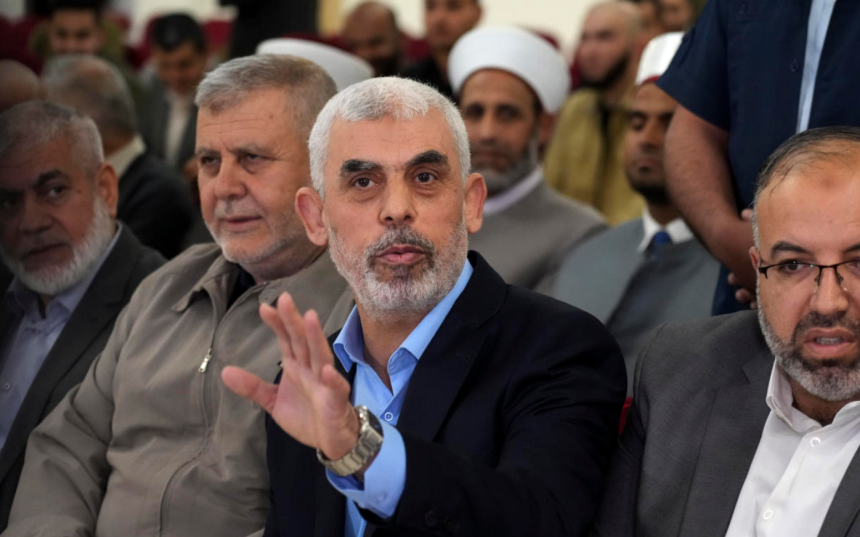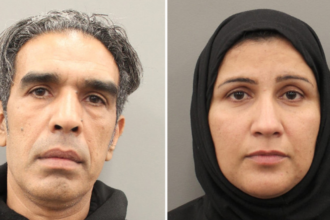The leader of Hamas’ strike on Israel, which prompted the greatest Israeli-Palestinian carnage in years, is a shadowy individual who is dreaded on all sides of the conflict.
No figure in Gaza looms larger in deciding the war’s eventual course than Yehya Sinwar. He is Hamas’ senior leader within Palestinian land, an obsessive, disciplined, and authoritarian experienced terrorist who mastered fluent Hebrew in Israeli jails and meticulously researched his adversary.
Officials in Israel have promised to murder him and bring down the armed organization that has dominated Gaza since 2007. But, seven weeks into the conflict, Sinwar, 61, is still alive, in hiding, and leading Hamas militants against Israeli forces. He is also in charge of the group’s discussions for the fate of around 240 captives abducted by extremists during the Oct. 7 raid.
With the devastation caused by Israel’s shelling and ground invasion, Sinwar’s political fate may now be determined by how the war ends and if Palestinians believe they have achieved anything from their enormous losses.
People would feel they have gained something if he can secure the release of all Palestinian detainees and the removal of Gaza’s 16-year embargo, according to Hani al-Masri, a senior Palestinian commentator. Otherwise, “it will be a big problem” for Sinwar personally, “because people will say that there was destruction, and we got nothing in return.”
With the revelation Wednesday of preparations for a temporary cease-fire and a hostage-for-prisoner swap between Hamas and Israel, Sinwar was able to claim an apparent political win — but at a catastrophic cost in Palestinian lives.
The exchange, which was supposed to commence on Thursday, was subsequently pushed back until at least Friday. There was no immediate explanation from Israel for the delay.
The wiry, grey-haired Sinwar is suspected of masterminding the Oct. 7 surprise strike into southern Israel, together with the much more enigmatic Mohammed Deif, chief of Hamas’ military wing.
The attack caught Israel’s military and intelligence apparatus off guard and destroyed the image of Israeli invincibility, as militants slaughtered around 1,200 people, largely civilians, in scenes of heinous violence.
Hamas claimed responsibility for the attack in revenge for increased Israeli atrocities against Palestinians, as well as the ongoing occupation of the West Bank and siege of Gaza — and to re-establish the Palestinian cause on the global stage.
It resulted in terrible Israeli reprisal, killing hundreds and demolishing large parts of Gaza.
Sinwar is a terrifying character to Israelis. Rear Adm. Daniel Hagari, the Israeli army’s top spokeswoman, labeled him a killer who “proved to the entire world that Hamas is worse than ISIS,” referring to the Islamic State group.
Some Palestinians admire Sinwar for defying Israel and sticking in poor Gaza, in contrast to other Hamas leaders who live more comfortably overseas.
Sinwar defiantly finished one of his few public statements two years ago by asking Israel to shoot him, declaring, “I will walk back home after this meeting.” He subsequently did so, shaking hands and snapping photographs with passers-by.
But he is also highly feared in Gaza for his iron control on public dissent.
Sinwar, in contrast to the media-friendly personalities established by certain of Hamas’ senior leadership, has not endeavored to establish a public image. He is known as the “Butcher of Khan Younis” because of his harsh treatment of Palestinians accused of cooperating with Israel.
Sinwar was born in the Gaza refugee camp of Khan Younis in 1962 to a family that had been expelled from what is now the city of Ashkelon during the 1948 war that preceded Israel’s establishment.
He was an early member of Hamas, which sprang from the Palestinian branch of the Muslim Brotherhood in 1987, during Israel’s military occupation of the coastal enclave.
Sinwar persuaded Hamas’s founder, Sheikh Ahmed Yassin, that the movement needed to be cleansed of Israeli spies in order to flourish as a resistance organization. They established a security arm known as Majd, which Sinwar headed.
When he was apprehended by Israel in the late 1980s, he acknowledged to killing 12 alleged collaborators under interrogation. He was later condemned to four life sentences for crimes that included the kidnapping and murder of two Israeli soldiers.
Michael Koubi, a former director of the investigations department at Israel’s Shin Bet security agency who personally interrogated Sinwar, recalled the confession that stood out the most to him: Sinwar described forcing a man to bury his own brother alive because he was suspected of working for Israel.
“His eyes were full of happiness when he told us this story,” stated Koubi.
Sinwar, on the other hand, was gregarious, affable, and astute, welcoming captives from all political groupings.
He rose to become the head of hundreds of Hamas prisoners. To improve circumstances, he organized strikes. He researched Israeli society and learnt Hebrew.
“Being a leader inside prison gave him experience in negotiations and dialogue, and he understood the enemy’s mentality and how to affect it,” Anwar Yassine, a Lebanese citizen who spent nearly 17 years in Israeli jails, much of it alongside Sinwar, said.
Yassine observed that Sinwar always treated him with dignity, despite the fact that he is a member of the Lebanese Communist Party, whose secular values clash with Hamas’ philosophy.
Sinwar overcame a severe type of brain cancer in 2008 after receiving therapy at a Tel Aviv hospital.
In return for Gilad Schalit, an Israeli soldier seized by Hamas in a cross-border incursion, Prime Minister Benjamin Netanyahu freed him together with roughly 1,000 other inmates in 2011. Netanyahu was roundly chastised for releasing scores of people imprisoned for their roles in fatal incidents.
Back in Gaza, Sinwar worked closely with Hamas’ political leadership as well as its military component, the Qassam Brigades. He also had a reputation for being cutthroat. He is generally suspected of orchestrating the 2016 assassination of another prominent Hamas commander, Mahmoud Ishtewi, in an internal power struggle.
He was named head of Hamas’ political bureau in Gaza in 2017. Sinwar collaborated with Hamas’ exiled leader, Ismail Haniyeh, to re-align the organization with Iran and its supporters, particularly Lebanon’s Hezbollah. He also concentrated on increasing Hamas’ military capability.
Surviving the conflict in whatever form would challenge Israel and provide a type of victory for Hamas. Sinwar himself may perish.
“I’m sure we’ll kill him eventually,” Koubi remarked. “But to destroy the ideology he planted, that’s not so easy.”















